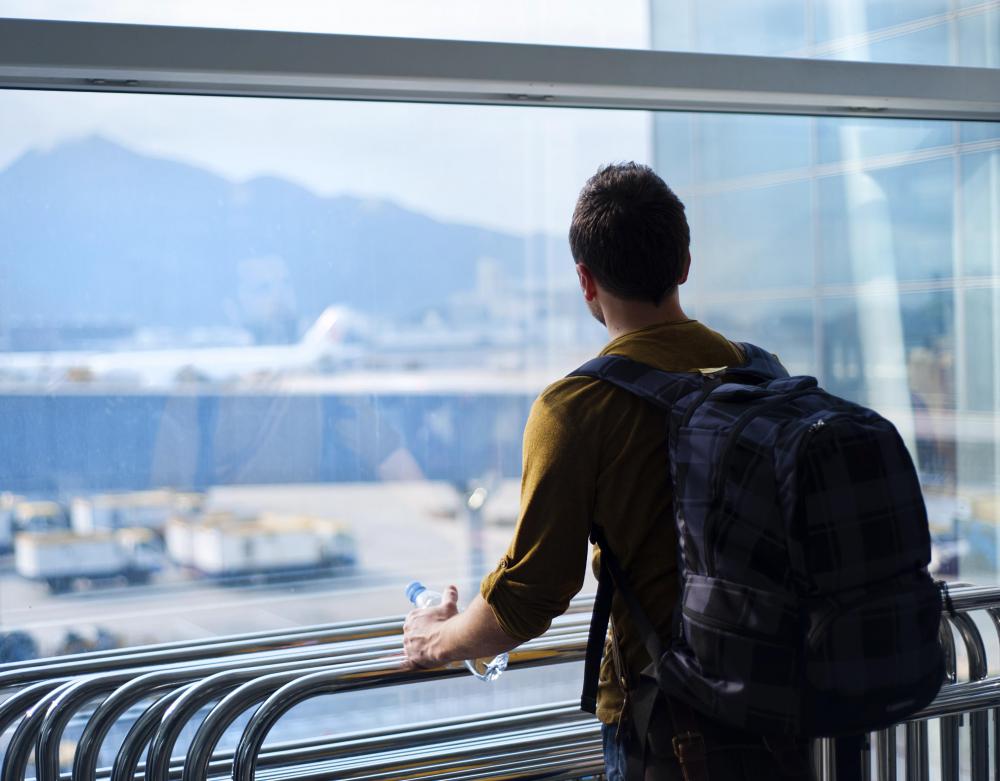At WiseGEEK, we're committed to delivering accurate, trustworthy information. Our expert-authored content is rigorously fact-checked and sourced from credible authorities. Discover how we uphold the highest standards in providing you with reliable knowledge.
What is a Visa?
A visa or travel visa is a document which gives someone permission to travel into a specific country and stay there for a set period of time. They may be stamped or glued directly into a passport for convenience, or they may be issued separately, in the form of documents which must be carefully protected to ensure that they are not lost or stolen. Some nations require everyone who enters to get a visa, while others have what are known as reciprocal agreements with certain nations which waive such requirements. It is important to research visa requirements before traveling internationally, as in some cases travelers must apply before they attempt to cross a border.
The term “visa” is a shortening of a Latin phrase, carta visa, which means “the document has been seen.” These documents take a number of forms, ranging from tourist to immigration visas, and each type has its own application process. For example, someone who wants to enter a country to do business would need to apply for a business visa, while someone who planned to relocate to a country would apply for an immigration visa that would allow him to enter the country and stay there for a set period of time while pursuing citizenship or residency permits.

Visas generally expire after a set period of time. In some cases, one may be extended by permission, while in other instances, people need to leave a country and re-enter it to receive a new one. They can also establish the number of times someone enters and leaves a country. In the case of a single entry visa, it is canceled as soon as the traveler leaves the country. In multiple entry, someone may leave and return several times before the visa is canceled.

When looking at a visa, you should be able to tell what type it is, how long it is good for, and whether or not multiple entries are permitted. Specific restrictions may also be written in, or indicated by the class of visa. For example, people with tourist visas are generally not permitted to work. If you aren't sure about the restrictions, be sure to ask immigration officials.

In some cases, a visa is issued by immigration officials when someone crosses a border into a new country. In other instances, people must apply for one before traveling. During the application process, the applicant may be asked if he or she has enough money to survive in the country for the duration of the visa, and inquiries may be made about the applicant's health, character, and intentions for the planned visit. In some cases, applicants are also fingerprinted and photographed.

This document may be denied for any number of reasons. People with certain infectious diseases, for example, may be told to seek treatment for those diseases before a visa will be issued. They may also be denied to people who could potentially strain the system of the country they are visiting: for example, someone without enough money to get by might be denied a visa out of concern that he or she could rely on public assistance for help.
AS FEATURED ON:
AS FEATURED ON:















Discussion Comments
I am an American living in Japan.
I don't want to say that anything here about visas is less than accurate. However, the tone alone suggests that the writer might have no experience with a visa or might never have traveled on a visa.
How long can you stay with a visa in a country?
Can VISA be described as 'visitor's intention to stay abroad'?
When I was backpacking in India, I decided to try to visit Nepal. So, I went to the Nepali embassy in New Delhi. They said it would take at least a day to process the visa, and they would have to keep my passport in their possession during the processing.
Needless to say, I was a little reluctant to hand over my passport, but I took the risk. In return, they gave me a fascinating large and heavy brass medallion with a hole in it. It was beautifully forged. I was to bring that back and return it for my passport the following day.
Passports have pictures so I don't think the medallion was to act as some sort of authentication device. Rather, I think they just wanted to give something of value in return for the passport that you gave to them. It was a way of giving confidence to visa-seekers.
What are the top 10 acceptable reasons why people need to have multiple entry visas?
Post your comments